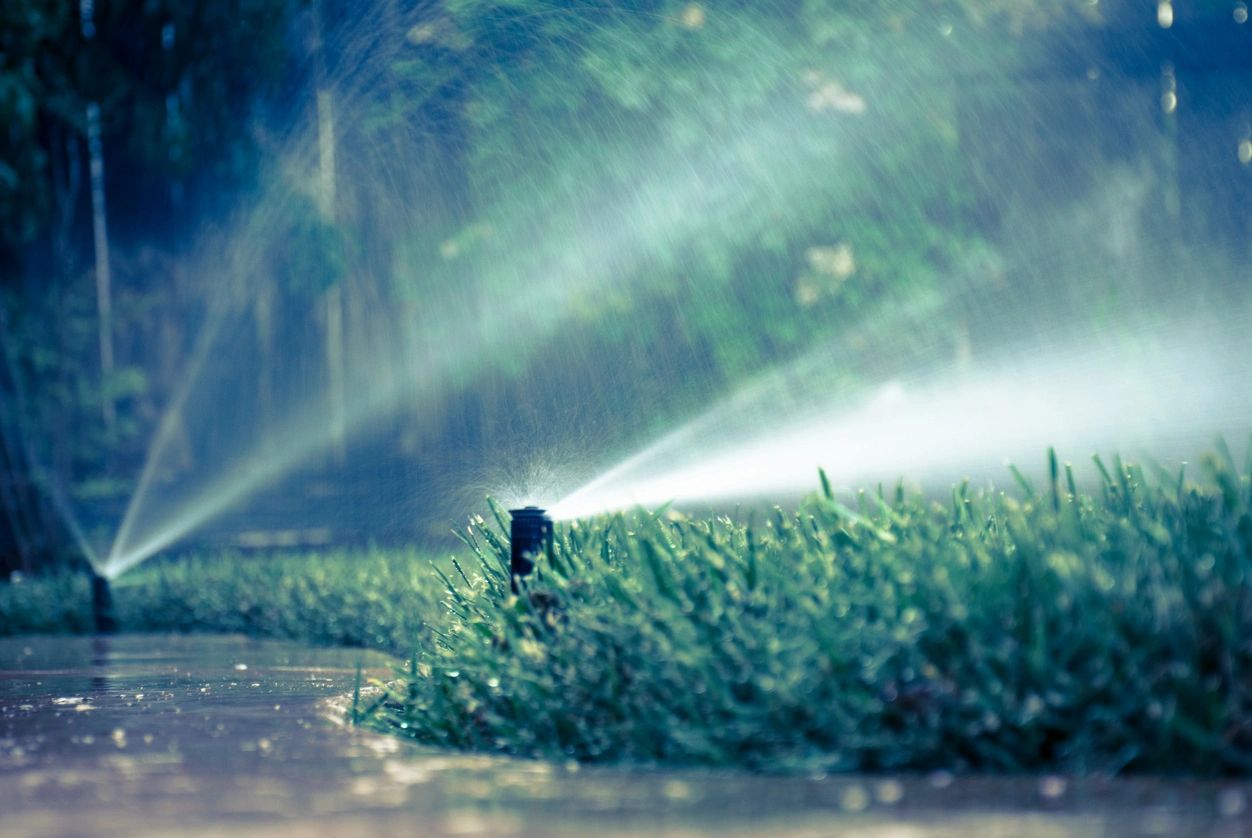Summer Irrigation Info

A question pops up every summer; is my landscape getting the right amount of water? It's July; count on the daily rainstorm, but is that enough water for the lawn? What changes should I make to my irrigation system during these sweltering months? We hope this blog answers those questions, keeps your lawn green, and even lowers your water bill.
Water watch
Like life, timing is everything when it comes to watering your lawn and landscape. During the summer, it's best to run your irrigation system twice a week. Yes, it will rain just about every evening, but keep in mind that it's hot outside, real hot, and your grass and plants need more water now than in the cool winter and fall seasons.
Now that your watering twice, make sure your irrigation timer is set to run in the early morning hours; before the sun comes up. Don't water in the afternoon; the H2O will evaporate under the scorching sun. Also, a little drop of water can act as a magnifying glass and burn blades. Watering at night may make your lawn too wet and susceptible to pests and diseases.
Between Mother Nature and your sprinklers, make sure your yard gets between a half-inch and
three-quarters of an inch of water about twice a week. However, that doesn't mean you want to see your system running when it's raining. Think of it as money being spread all over the already wet lawn. If you've noticed this problem, it might be the rain sensor. The water conservation device turns off your entire system if it detects too much water.
Height & color check
The height of your grass also plays a part in this watering equation. In short, the higher, the better. We know short grass looks better, but it also means that the grass spends more energy growing blades and less building stronger roots. Lawns with better root systems are more drought-resistant than others.
Your lawn can communicate; you have to know its language or, to be more precise, it's color. Yellow grass filled with weeds is a sign that it's getting too much water. If the grass is more blueish-gray than green, it's not getting enough. Another sign that your lawn needs more water is folded blades; this is how grass conserves water.
Irrigation can be intimidating. You've only read a few things; we haven't touched on sprinklers, the backflow, and that clock with all the small buttons in the garage.
Remember, ELT Landscape technicians are irrigation experts. Our teams can do it all and continually train on new techniques and equipment. Contact us with your watering questions and ask about our unique summer irrigation maintenance program, which includes monthly checks.
